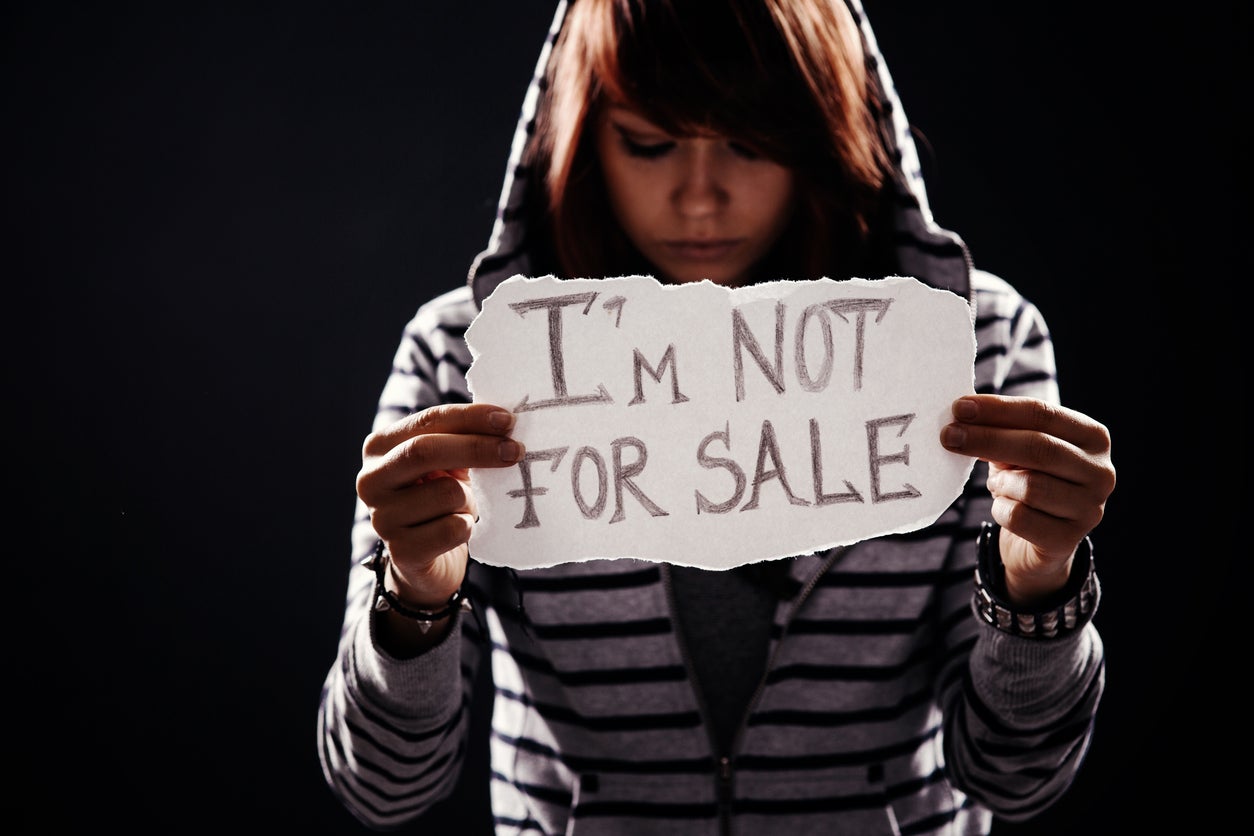I help victims of sex trafficking and coronavirus is putting more women at risk
The pandemic has had a dire impact on the resources available to those in danger, victims now have far fewer chances to escape their abusers


“I’m sorry, but due to Covid-19 we are not able to accept any new intakes at this time.”
This is more often than not the response I get as a service provider trying to find safe shelter and resources for women and men who are experiencing sexual exploitation.
At Sisters of the Streets, we provide various services, from online support, community training and education, to monthly packages of beauty and healthcare items, as well as our outreach work where we build communities and get to know our service users. Because we do not have our own residential programme, since 2016 we have been working with other groups and organisations to house our service users. This year, however, has been by far the most challenging time I have ever experienced as a service provider.
Since March, we have been working with 32 people who have experienced or were experiencing sexual exploitation and who were or are in need of housing, residential programs or emergency shelter. We have only successfully been able to place 10.
The other 22 people we’ve been working with to provide vital resources. Unfortunately, some may go back to their abusers because they feel safety and security there in a way, which they don’t get while being on the streets. Some might go back to prostitution because it's their only means of survival, some might overdose because their depression and hopelessness becomes too much, and some will just keep trying to find whatever resources are available, until they can find something permanent.
The majority of shelters had to stop taking new intakes due to the risk spreading the virus, and the resources that are available are, understandably, completely full. Hotel vouchers have been scarce to non-existent. Some of the women I have been serving have even been kicked out of their current placements because they had Covid-19 symptoms.
Not only has Covid-19 impacted those needing shelter, but the request for rental and utility assistance has skyrocketed. Survivors have worked so hard to obtain and maintain their own apartments or housing – along with self-sufficient jobs – all for Covid-19 to come in and destroy everything they have worked for. Multiple survivors have lost their jobs, which then trickles down to them being short on rent money, which then puts them in a position to either revert back to their exploitive behaviours and/or has prompted them to relapse or attempt suicide because they are feeling like there is just no way out.
Domestic violence is also on the rise during a pandemic. Covid-19 has often forced those who were ready to leave their abuser, to stay. With limited to no options, those being abused choose physical survival over safety and mental health.
All in all, Covid-19 has had an extreme impact on the resources available to those in desperate need as well as exacerbating the mental health obstacles that we fight so hard to address. As we know well, regulating our mental health is a key component in transforming our lives.
Although some funding is available, there is a huge lack of funding to grassroots organisations and survivor-led organisations. The majority of funding available goes to big non-profits, they do valuable work, but usually do not do the “boots to the groundwork” required to make real transformations.
More than ever, now is a time for community. Unfortunately, resources will continue to be limited. We must, as a society, create support and help for each other, through each other. We must rise up and offer what we can – support, employment, shelter, money and tangible items, such as the beauty and make-up we deliver through our outreach “purse project”. But most importantly we must offer humanity, everywhere we go.
Jaimee Johnson is chief executive director and founder of Sisters of the Streets
If you have been affected by rape or sexual abuse, you can contact Rape Crisis on 0808 802 9999 or visit rapecrisis.org.uk
Join our commenting forum
Join thought-provoking conversations, follow other Independent readers and see their replies
Comments



Bookmark popover
Removed from bookmarks